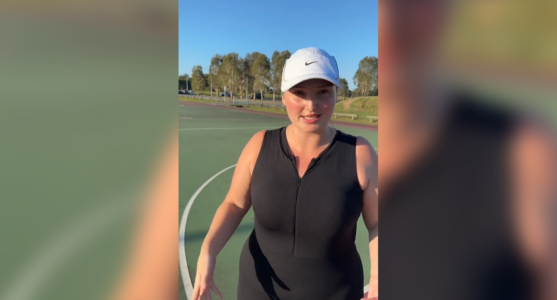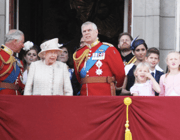Discover the Shocking Memory that Haunts Every Aussie Kid – Are Your Children Safe from It?
By
- Replies 30
The mere mention of the Beep Test is enough to send shivers down the spine of many Australians who recall their school days with a mix of nostalgia and a touch of dread. This infamous fitness challenge, a rite of passage for Aussie kids, has been branded by some as nothing short of 'traumatising'. But what is it about this seemingly innocuous physical test that has left such a lasting impression?
For the uninitiated, the Beep Test, also known as the Shuttle Run or Multi Stage Fitness Test, was developed in the 1970s at the University of Montreal. It was designed to measure aerobic capacity by having participants run back and forth between two points, 20 metres apart, at a pace dictated by a series of beeps. With each level, the beeps quicken, pushing the participants to their limits.
This test, which somehow found its way into the physical education curriculum of schools across Australia, was never just another PE activity. It was a trial by fire, a battle of wills, and, for many, a source of anxiety and embarrassment. The Beep Test was the antithesis of a leisurely game of cricket or netball – it was competitive, exhausting, and, for some, downright humiliating.
Riley Hemson, a fashion label owner and influencer, recently revisited this childhood challenge, documenting her attempt to conquer the Beep Test as an adult. Her goal was to reach level nine, considered the 'upper end' of the average, but the experience proved to be as daunting as ever. Despite her determination, Riley only managed to reach level 3.2, a humbling reminder of the test's difficulty.
Her experience resonated with many on social media, who shared their own 'fond' memories of the test. Comments ranged from recalling the physical sickness it induced to the PTSD-like reactions triggered by the sound of the beeps. It seems the Beep Test has left an indelible mark on the collective memory of Australian youth.
But beyond the shared commiseration over this childhood ordeal, there's a serious conversation to be had about the impact of such fitness testing on children's attitudes towards exercise. In 2023, researchers from the University of South Australia began investigating the potential long-term effects of mandatory fitness tests like the Beep Test on exercise habits.
Daiki Kasai, a researcher and PhD candidate at the university, highlighted the importance of measuring children's fitness as an indicator of current and future health. However, he also pointed out the potential negative emotional responses that exhaustive tests can provoke. These unpleasant experiences during exercise could significantly influence whether individuals choose to remain active later in life.
With 80 per cent of Australian children not meeting national guidelines for physical activity, the study aims to understand children's feelings towards fitness testing and inform future fitness policies. It's a crucial step towards ensuring that the next generation of Australians develops a healthy relationship with exercise, free from the trauma of the Beep Test.
As we reflect on the legacy of the Beep Test, it's essential to ask ourselves whether the methods we use to encourage fitness in children are nurturing or damaging their lifelong attitudes towards health and exercise. The memories of the Beep Test serve as a powerful reminder that the way we approach physical education needs to be as much about fostering a love for activity as it is about measuring fitness levels.
Credit: @riley.hemson / TikTok
 To our readers, we pose the question: What are your memories of the Beep Test, and how do you think it has affected your attitude towards exercise? Share your stories and thoughts in the comments below, and let's discuss how we can create a positive and encouraging environment for our children to thrive in their physical pursuits.
To our readers, we pose the question: What are your memories of the Beep Test, and how do you think it has affected your attitude towards exercise? Share your stories and thoughts in the comments below, and let's discuss how we can create a positive and encouraging environment for our children to thrive in their physical pursuits.
For the uninitiated, the Beep Test, also known as the Shuttle Run or Multi Stage Fitness Test, was developed in the 1970s at the University of Montreal. It was designed to measure aerobic capacity by having participants run back and forth between two points, 20 metres apart, at a pace dictated by a series of beeps. With each level, the beeps quicken, pushing the participants to their limits.
This test, which somehow found its way into the physical education curriculum of schools across Australia, was never just another PE activity. It was a trial by fire, a battle of wills, and, for many, a source of anxiety and embarrassment. The Beep Test was the antithesis of a leisurely game of cricket or netball – it was competitive, exhausting, and, for some, downright humiliating.
Riley Hemson, a fashion label owner and influencer, recently revisited this childhood challenge, documenting her attempt to conquer the Beep Test as an adult. Her goal was to reach level nine, considered the 'upper end' of the average, but the experience proved to be as daunting as ever. Despite her determination, Riley only managed to reach level 3.2, a humbling reminder of the test's difficulty.
Her experience resonated with many on social media, who shared their own 'fond' memories of the test. Comments ranged from recalling the physical sickness it induced to the PTSD-like reactions triggered by the sound of the beeps. It seems the Beep Test has left an indelible mark on the collective memory of Australian youth.
But beyond the shared commiseration over this childhood ordeal, there's a serious conversation to be had about the impact of such fitness testing on children's attitudes towards exercise. In 2023, researchers from the University of South Australia began investigating the potential long-term effects of mandatory fitness tests like the Beep Test on exercise habits.
Daiki Kasai, a researcher and PhD candidate at the university, highlighted the importance of measuring children's fitness as an indicator of current and future health. However, he also pointed out the potential negative emotional responses that exhaustive tests can provoke. These unpleasant experiences during exercise could significantly influence whether individuals choose to remain active later in life.
With 80 per cent of Australian children not meeting national guidelines for physical activity, the study aims to understand children's feelings towards fitness testing and inform future fitness policies. It's a crucial step towards ensuring that the next generation of Australians develops a healthy relationship with exercise, free from the trauma of the Beep Test.
As we reflect on the legacy of the Beep Test, it's essential to ask ourselves whether the methods we use to encourage fitness in children are nurturing or damaging their lifelong attitudes towards health and exercise. The memories of the Beep Test serve as a powerful reminder that the way we approach physical education needs to be as much about fostering a love for activity as it is about measuring fitness levels.
Credit: @riley.hemson / TikTok
Key Takeaways
- An Australian influencer has described the Beep Test, a common school fitness activity, as 'traumatising' for children.
- The Beep Test, also known as the Shuttle Run or Multi Stage Fitness Test, is used to determine aerobic capacity by having participants run between two points at increasing speeds.
- Social media users shared their own experiences with the Beep Test, with many describing it as a source of childhood anxiety and trauma.
- University of South Australia researchers are investigating how mandatory fitness tests like the Beep Test may affect children's attitudes toward exercise in the future.








